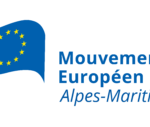While the vaccination campaigns of the Member States began at different rates on December 27, the European Union, which unveiled its vaccination strategy guiding the actions of the Twenty-Seven in this matter, must find a precarious balance between different objectives.
The first of these objectives is to ensure the health safety of Europeans. This involves the necessity of guaranteeing the continent’s populations access to the vaccine—at more attractive prices by pooling purchases—in order to trigger collective immunity against the virus, but also by closely monitoring the vaccine candidates proposed by the laboratories.
Unlike the United States or the United Kingdom, which have given emergency market authorizations (faster but also less thorough in terms of control), the European Commission has therefore granted a conditional marketing authorization—more demanding in terms of scientific review—to Pfizer/BioNTech and Moderna. In the coming months, it could do the same for the other vaccine candidates for which it has signed contracts.
Similarly, the European Commission has sought to ensure equality among Member States regarding vaccine access. This means, for example, that it has limited weekly distributions to 520,000 doses for France, a quota Paris deems insufficient to successfully conduct its national vaccination campaign. The French government’s criticisms on this matter highlight the Union’s issue: the challenge for Brussels is to enable Member States to have a sufficient stock of doses, while ensuring equal access to it for the Twenty-Seven.
The European Commission authorized the conditional marketing of the vaccine developed by Moderna on January 6, 2021. Criticized—particularly in Germany—for its slowness and the low number of vaccine doses ordered, it also signed a new contract with BioNTech/Pfizer two days later to double the number reserved for Europeans.
Another project that should animate 2021 in health matters is the reclamation of European health sovereignty. The pandemic has indeed highlighted the European supply chain’s dependency on imports from Asia. Today, China and India produce 80% of the raw materials needed for the manufacturing of medicines consumed in Europe. This observation has thus prompted the European Union to develop its pharmaceutical strategy.
To reverse this trend, the European Union plans to establish a biomedical research agency whose creation will be specified before the end of the year. It has also outlined an ambitious multiannual financial framework for 2021-2027 in health matters, as the EU4Health program is endowed with 9.4 billion euros, an amount 20 times higher than that of the previous exercise.
The Union’s vaccination strategy will be at the heart of the first European Council of the year, on January 21.



